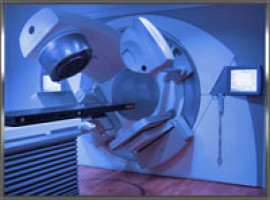
Prostate cancer is one of the most common cancers in men.
Tumour growth is critically regulated by the androgen receptor (AR), and treatment strategies to lower androgens, such as testosterone, are a mainstay of clinical treatment.
Over time, however, resistance frequently develops and the disease may progress to a castration-resistant form that expresses a variant of the androgen receptor, which evades blockade by drugs that dampen androgen receptor signalling.
Thus, clinically there is an urgent need to identify patients expressing androgen receptor variants to determine which treatment options are likely to benefit patients.
In this issue of JCI Insight , researchers at the University of British Columbia describe a new imaging tool to detect the presence of the androgen receptor and its active splice variants.
Led by Marianne Sadar, the research group developed an analogue of an investigational drug that binds to portions of the androgen receptor that are common to the full length and variant forms of the androgen receptor.
In a mouse model of prostate cancer, they showed that this compound specifically detected prostate cancer cells expressing androgen receptor by SPECT/CT imaging.
The authors conclude that "these studies suggest that an AR N terminal domain–targeted molecular imaging probe has significant potential for monitoring treatment response; providing insight into the role of all AR species, including AR variants, in resistance mechanisms of castration resistant prostate cancer; and may provide a means of targeted radiotherapy."
Source: JCI Insight
The World Cancer Declaration recognises that to make major reductions in premature deaths, innovative education and training opportunities for healthcare workers in all disciplines of cancer control need to improve significantly.
ecancer plays a critical part in improving access to education for medical professionals.
Every day we help doctors, nurses, patients and their advocates to further their knowledge and improve the quality of care. Please make a donation to support our ongoing work.
Thank you for your support.